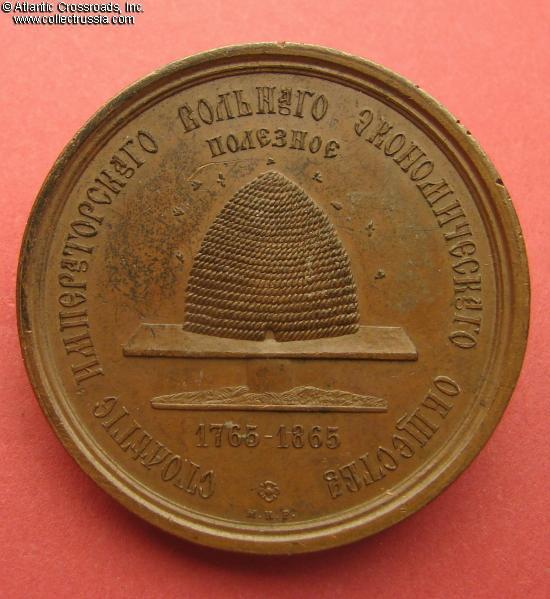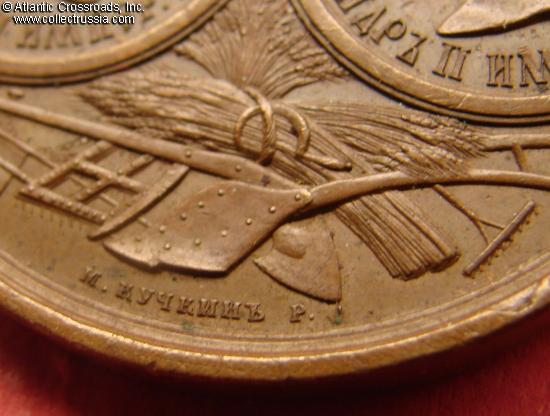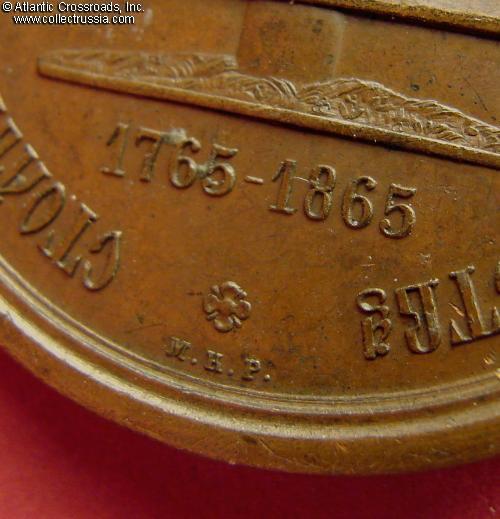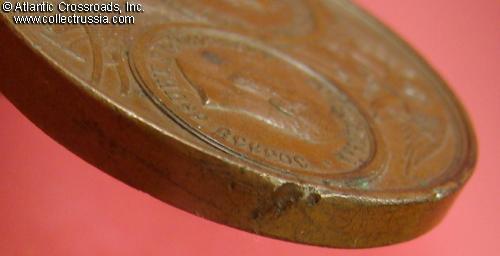
100th Anniversary of the Imperial Liberal Economic Society, bronze award medal, 1865.
45.9 mm wide; weighs 53.9 grams. Engraved by M. Kuchkin. Obverse bears the profiles of Catherine the Great and Alexander II with an angel overhead and farm implements and wheat sheaves below. The reverse shows a very active beehive and bears the inscription: "Centenary of Imperial Liberal Economic Society. For Usefulness."
Very fine condition. Deep chocolate color (as in our third photograph). The medal is 5mm thick and has a nice heft to it. Some surface wear but nothing that negatively affects the medal's overall appearance. Edge knock at three o'clock on
45.9 mm wide; weighs 53.9 grams. Engraved by M. Kuchkin. Obverse bears the profiles of Catherine the Great and Alexander II with an angel overhead and farm implements and wheat sheaves below. The reverse shows a very active beehive and bears the inscription: "Centenary of Imperial Liberal Economic Society. For Usefulness."
Very fine condition. Deep chocolate color (as in our third photograph). The medal is 5mm thick and has a nice heft to it. Some surface wear but nothing that negatively affects the medal's overall appearance. Edge knock at three o'clock on the obverse rim.
The Imperial Liberal Economic Society was established by wealthy Russian landowners in 1765 under Count Grigory Orlov in an attempt to begin a serious study and discussion of agricultural techniques being practiced elsewhere in the world. The Society was generally known to be the brainchild of Catherine the Great.
By the 1890s, the society had begun (at least in the eyes of the Russian police) to live up to the "Liberal" part of its name. While it never completely lost its interest in agricultural affairs, it had become such a noted forum for the open discussion of potential reform measures that the government of Nicholas II temporarily dissolved it in 1900. When it reformed shortly thereafter, it stopped holding public meetings and its sessions were limited strictly to members.
/Mikhail Dyakov, "Medals of the Russian Empire, Part 5,
1855-1881", page 140, fig. 735.1/
$290.00 Add to cart




